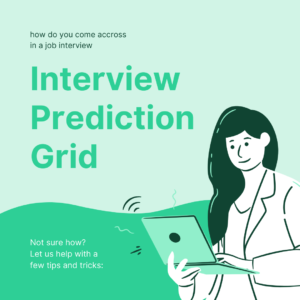What You Should Expect in a Job Interview
To pass the job interview you need preparation.
The only way to prepare for a job interview is to know what to expect in the job interview, as well as being able to deal with the unexpected.
Often interviewees worry about the forthcoming job interview, which creates anxiety, as they don’t know how to predict the interview process or interview questions.
This article will teach you what you should expect from the job interview, helping you to prepare. With preparation, you can practice, practice and practice – which is the key to your job interview success.
The Interview Structure
This article will concentrate on the traditional face to face job interview. Many companies are now delivering a two-part job interview; the traditional interview as we will discuss today and then an assessment type interview. This could be a presentation, group work assignment or examination.
In the traditional job interview, you will be interviewed by 1-3 interviewers. When interviewed by more than one interviewer, the interveiwers will take it, in turn, to ask questions, while all the interviewers will record your answers.
Interviewers will score each answer on a scale of 1-10 the scores are then totaled and the interviewee with the most points will be offered the position.
Interview Beginning
At the interview start, you will first be introduced to the interview panel.
The lead interviewer will go on to explain the position, why the role is being advertised and the benefits of working for their organisation.
You will then be asked some generic interview questions, designed to get you talking more openly and confidently. The interview questions will then progress into skill and experienced-based interview questions where you will have to give examples of your skills and experiences.
Interview End
Finally, at the interview end, you have the opportunity to ask your own questions before the lead interviewer explains when they will contact you with the outcome from all the interviews.
Interview Questions
There are several generic interview questions that are asked in one form or another at all job interviews.
Interview Start Questions
- Tell me a bit about yourself?
- Why have you applied for this position?
- What is your experience in this sector?
Skill and Experience Questions
- Give me an example of X?
- How would you deal with Y?
- What is your approach to X?
Interview End Questions
- How do you see yourself fitting in with our team?
- What can you bring to our organisation ?
- Do you have any questions for us?
Access over 50 interview questions and answers.
You can predict other interview questions by reading the job specification.
Often each essential criterion on the job spec will be re-worded into an interview question. To answer these questions think about a time you have successfully complete the criteria and use this example as part of your interview answer.
When answering the interview questions you should always start by stating confidently how you have “criteria” before backing this up with a real-life work-related example.
When required explain how this experience/skill can be used to benefit the company for who you are being interviewed.



